Your home in 2025: what will it be like?
The home tech trends we'll see in 13 years' time
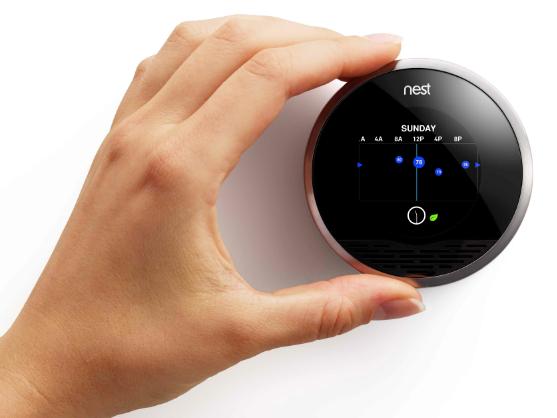
What if your home could suddenly become much more intelligent?
Today, your aging boiler/furnace is blissfully unaware of every other heat source, whether the window blinds are open or closed, and even if you are at home at all. You might have a home server you use to stream video to another room, but it is probably not connected into the oven or the lighting system on your front porch. That's all about to change over the next 10-15 years.
Smart gauges that can report on energy consumption are finally making in-roads, wireless connections like Bluetooth are more prevalent (and use less power).
Even the car in your garage will someday connect into your security system and energy grid. So here are a few of the technologies you can expect in your part of town in the not-too-distant future.
1. Robots everywhere
The traditional view of the robot is an android with arms and legs. In the future home, robots will meet our every need – but we won't even call them robots. Home appliances will become more self-aware – think of the iRobot Roomba 780 (below) which can be set to vacuum on a schedule, find its way around furniture, and even stay within a specific zone.
In 15 years, devices for cleaning windows, sweeping the floor, and even making minor repairs will do their work inconspicuously. Yet, even the predictive technology in your home – using less energy during one week because the weather forecast says you will need more heat for an upcoming cold spell – has robotic intelligence.
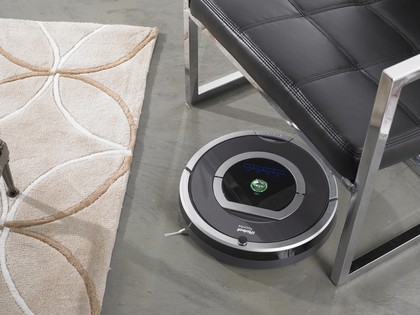
2. Smart content
The future home will be intelligent enough to predict what you want to do with content. Dell spokesperson Chad Andrews told TechRadar about a concept where media knows more about the playback device that we can even conceive today: adaptive music, movies, and photos that change shape and size (and color profiles) based on whether you are viewing them in the living room on an HDTV or on a tablet in your office.
Get daily insight, inspiration and deals in your inbox
Sign up for breaking news, reviews, opinion, top tech deals, and more.
Better yet, data centers (probably for your city) will predict the media you want to use and provide that media in the proper formats and sizes.
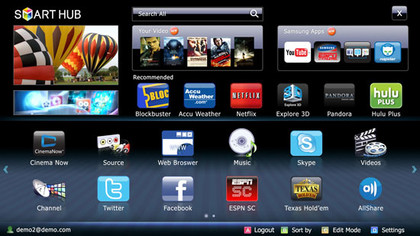
3. Visual cues
As you might expect, the number of screens in the future home will increase exponentially. To avoid overload, the visual information will integrate better into appliances, mirrors, and even the tools and household items you use. There might be flexible display on your cleaning detergent with instructions for use, or a ruggedized display in the garage that reminds you about home maintenance.
Steve Day, a Cheetah Technologies spokesperson, says information will be relative to the task at hand: a screen in the kitchen will report when you are running low on key items like sugar and cereal.
4. Interconnected awareness
The future home will be more self-aware, especially about other activities inside the home. For example, as Steve Day from Cheetah Technologies pointed out, video feeds in one room might show you a view of the kitchen, and even the casserole cooking inside the oven.
All of these video feeds will be instantly available on your phone or tablet – or on the flexible display reader you carry around.
5. Energy storage
The future home will act more like a hybrid car. Your heating system, for example, will not just have a high efficiency – the amount of energy it uses to produce heat. Instead, a hybrid furnace/boiler might automatically switch to battery packs in the home during low usage times.
Sensors in the home will know when you are not present, and use less energy. Data about the refrigerator settings will be fed directly to a central home energy server that can make adjustments to the coolness level based on your consumption, how often you have used other appliances, and even the usage level for your neighborhood.
6. Speech enabled
Whether you are a fan of Apple Siri or not, one thing is clear: speech tech has finally hit the mainstream. The next fertile ground: your home will understand what you say. Already, Samsung and others are developing smart televisions that understand spoken commands.
In the future, your home will respond to voice requests for the news, sports, and entertainment. More importantly, your home will using advanced algorithms that determine when you are speaking to the home or to your spouse – sensing a change in your tone, or interpreting a phrase that must be an instruction to change the house temperature.
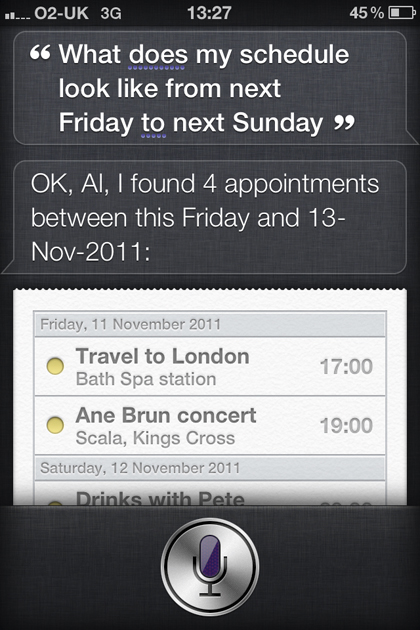
7. Better Contextualization
The future home will be smart enough to know what you want – sometimes even before you want it. Ford has already started experimenting with the Google prediction engine to guess where you want to go at certain times of the day.
Your house will also know your preferences: when you start a movie, the lights will dim to the level you normally use. Moisture sensors in your lawn will learn how much you use a sprinkler system and adjust patterns accordingly.
At 5:30 when you normally get home, the front lights will turn on and, when a sensor in the driveway knows you have arrived, the home will disable the security system, turn on interior lights, and open the garage door.
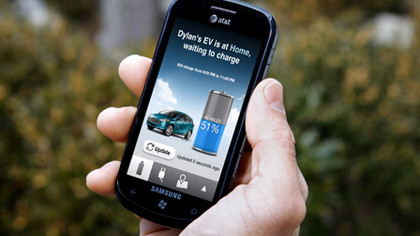
John Brandon has covered gadgets and cars for the past 12 years having published over 12,000 articles and tested nearly 8,000 products. He's nothing if not prolific. Before starting his writing career, he led an Information Design practice at a large consumer electronics retailer in the US. His hobbies include deep sea exploration, complaining about the weather, and engineering a vast multiverse conspiracy.
